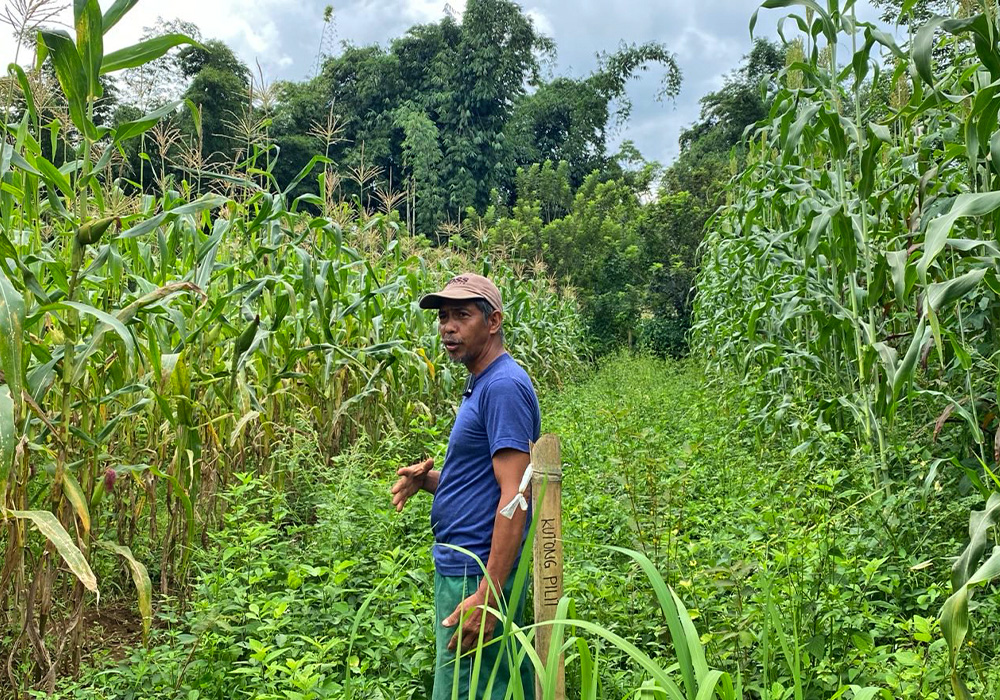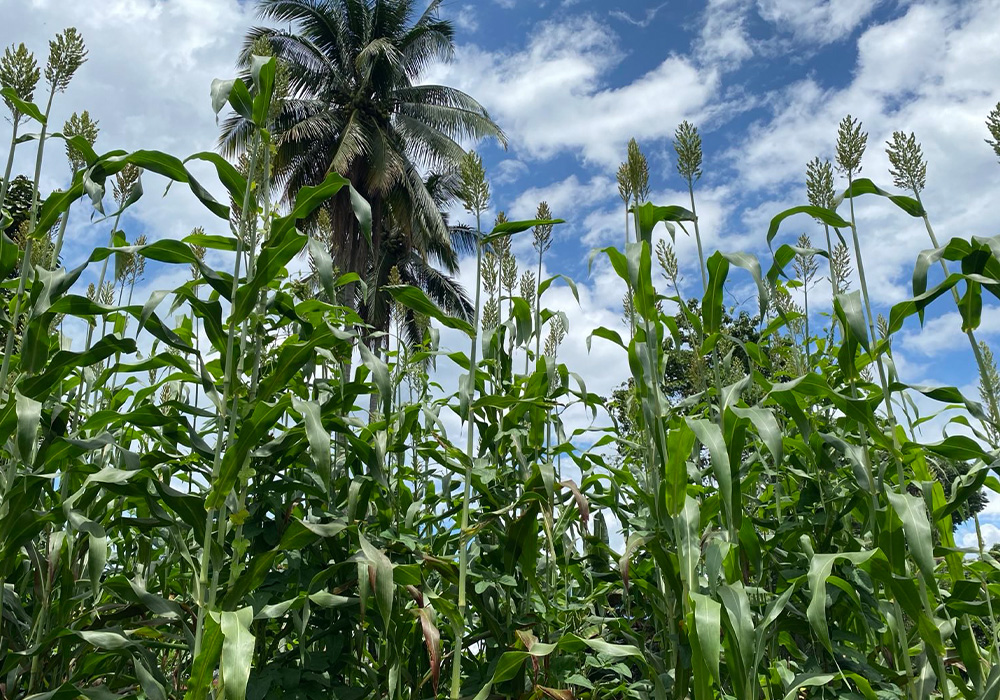
Datu Roel sharing their 1/4 hectare learning farm in Barangay Balintad, Baungon. (SAMDHANA/Sweet)
- admin
- 23 September 2024
- Feature
Agroecology and Culture (AgroeCu) Road to Community Resiliency
“Ang binhi kinabuhi (Seed is life),” said, a Higaonon resident of Baungon, Bukidnon.
The Higaonon People’s way of life has always been connected to land. Since time immemorial, they relied on the bounty of their territories, and produced food from their lands. They have developed farming systems that are appropriate to their terrain and experienced climate patterns. However, these knowledge systems are endangered.
In indigenous communities, there has been a gradual decline in the traditional or natural way of farming since the 1960s. The introduction of agrochemicals caused the disappearance of traditional seed varieties and consequently traditional farming practices.
The agrochemical industry aggressively pushes the use of synthetic fertilizers and pesticides. A research released by Greenpeace in 2008 cites former president Ferdinand Marcos Sr.’s Masagana 99 project in 1972 as massively increasing the planting of High-Yield crop Varieties (HYV) and the use of agrochemical products. This consequently led to the near-extinction of indigenous rice varieties.
“Agrochemical farming is full of deceptions,” said Erwin Rayos, a staff of Samdhana - Philippines. “It resulted to farmers being burdened with debt because of the expensive farm inputs and the damages the chemicals caused to their land.”
Greenpeace also notes the pressure chemical and biotechnology companies can exert over policy makers. And despite the use of HYVs, Philippines is still a net importer of rice and corn.
“Some farmers, especially from our Lumad communities, have not lost hope,” Rayos said. “They fight against hunger and poverty by rejecting agrochemical farming and going back to the organic farming method, using traditional seeds and traditional farming practices.
This time however, an additional challenge is added to the deteriorated state of the natural environment: climate change. But to this, indigenous communities are at an advantage. Traditional crops, varieties native to their territories, are resilient, and can weather prolonged drought and high temperatures unlike hybrid seeds.
From 2023 to 2024, the Higaonon community, together with Samdhana, established a learning farm site in Balintad Baungon Bukidnon where they planted 50 corn varieties in the field - 8 traditional and 42 hybrid varieties.

Five of the varieties were able to adopt to the local climate: JDC 4, JDC 14-2, JUN 3, GLADE 1-3, and Isabela.
More importantly, they also planted the traditional corn variety, Tinigib. “For many years the Indigenous communities preserved the Tinigib corn seed,” said Rayos. “It had been provided to small farmers throughout Mindanao. And they saw that it did well in their climate.” They were able to test its resilience when they suffered drought. It was able to survive the high temperature and with little water.
“Ang pagpagahom sa mga maguuma ug paghatag kanila ug suporta, maoy dalan pagkab-ot sa Katilingban nga malahutayon ug may kasigurohan sa pagkaon (Sustainability and food security can be achieved through the empowerment of and support to farmers.),” said Rayos.
Despite the pressure to acculturate to the mainstream consumerist and market-driven economy, Indigenous Peoples assert their right to their own understanding of development. And this means maintaining their knowledge systems that have nurtured generations since time immemorial, age-old wisdom that ensures a sustainable, mindful, and efficient use of earth’s limited resources